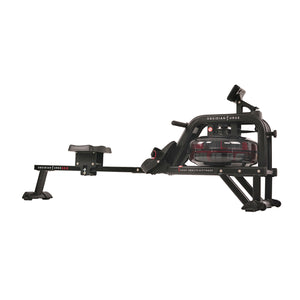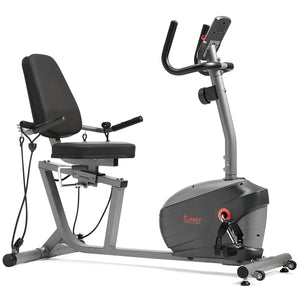Did you know you depend on electrolytes for survival? Electrolytes are vital to the human body for basic functioning. These molecules are critical to muscle and brain operations. Many of your automatic processes rely on their electric current to function. Electrolytes help your body regulate chemical reactions and maintain balance.
Replenishing electrolyte loss during rehydration is very important. If you are undergoing intense work or exercise or if your goal is to maintain peak performance, balanced levels of electrolytes will help you recover fast and stay mentally focused. The primary electrolyte we lose through sweat is sodium. While sodium often gets a bad rap, the human body requires a small amount to function properly. The number of electrolytes you lose during any given workout routine will depend on your body weight, fitness level, exercise intensity, duration of workout, how hot it is, and how much you sweat. (1) When we sweat, electrolytes are in charge of keeping appropriate water balances inside and outside the cell. This process assures that we are properly hydrated and is essential for healing and recovery.
What Exactly Are Electrolytes?
Electrolytes are a compound that produces ions when dissolved in a solution. When they dissolve in watery fluids like blood, or other body fluids, they become ions. These ions hold either a positive or negative electrical charge. They can move across cell membranes as is necessary to complete various biochemical functions. (2) Electrolytes can be acids, bases, or salts. The electrolytes that are the most important in nutrition are calcium, chloride, magnesium, phosphorus, potassium, and sodium. (3) Like water, your body is unable to produce electrolytes so you must consume foods or supplements to restore electrolyte levels. In terms of hydration, electrolytes are responsible for directing water and nutrients to depleted areas in the body and for maintaining optimal fluid balance within the cells.
What Do Electrolytes Do?
With every movement, your muscles need an electrical impulse to facilitate muscle contraction and relaxation. All nerve communication and every heartbeat depend on these electrical impulses. In fact, they control nervous-system function and are essential to cardiovascular health. If your body’s electrolyte levels are low or if they are out of balance, your muscles might spasm or cramp. Electrolytes also work to hydrate your body, regulate, and balance your pH levels (the measure of acidity and alkalinity), and rebuild damaged tissue. (4)
How to Get Electrolytes?
Exercise depletes the body's stores of fluids and minerals through sweat. So, what is the best way to supplement them? If you’re doing light to moderate exercise, drinking a few glasses of water will be fine. However, if you’re undergoing strenuous exercise, you may need something else to replenish the salts and fluids that have been lost. Many fruits and vegetables are good sources of electrolytes, so natural juices, like orange juice or coconut water, can help restore them. If you have a little more time, there are several foods that are a good source of electrolytes, such as spinach (calcium, and magnesium), pickle juice (sodium and chloride), lentils (magnesium, potassium, and phosphorus as well as protein), dried apricots (potassium), and nuts or seeds (magnesium). (5)
Many people turn to sports drinks to re-up on their electrolytes, but these sweet drinks are often packed with sugar (e.g., glucose, high-fructose corn syrup, sucrose). Even if they are marketed as sugarless, they are typically flavored with low-calorie, “natural” sweeteners. This game-day concoction, while intended for quick hydration and absorption, typically don’t include enough minerals like potassium and sodium. (6) Studies have found that they are an inefficient way to treat electrolyte imbalance caused by dehydration. (7) So, always read the label.
How to Know if Your Electrolytes Are Imbalanced?
Fluctuating electrolyte levels are normal, but a significant imbalance can cause serious health problems. There are many symptoms that can accompany an imbalance in electrolytes, such as fatigue, headache, nausea, blood pressure changes, muscle cramps, irregular heartbeat, weakness, muscle spasms or twitching, excessive tiredness, numbness, low energy, and seizures. (8) You should call your healthcare provider if you notice a sudden change in any symptoms related to your electrolyte levels.
@sunnyhealthfitness Get in those #electrolytes and get a better #sleep 😴 #foryou #healthandwellness #nutrition #fitness ♬ Vibes - ZHRMusic


1. Elete Electrolyte. (2006). Water + Electrolytes: How They Prevent Dehydration. Elete Electrolyte. https://eletewater.co.uk/blogs/research/8029111-water-electrolytes-how-they-prevent-dehydratio
n#.ZAfR5ezMLOS. Accessed 3 March, 2023
2. MedlinePlus. (2016). Fluid and Electrolyte Balance. MedlinePlus. https://medlineplus.gov/fluidandelectrolytebalance.html. Accessed 3 March, 2023
3. Shrimanker, I., & Bhattarai, S. (2022). Electrolytes. In StatPearls. StatPearls Publishing.
Available from: https://www.ncbi.nlm.nih.gov/books/NBK541123/. Accessed 3 March, 2023
4. Cleveland Clinic. (2021, September 24). Electrolytes. Cleveland Clinic.
https://my.clevelandclinic.org/health/diagnostics/21790-electrolytes#:~:text=What%20do%20ele
ctrolytes%20do%3F,inside%20and%20outside%20of%20cells. Accessed 3 March, 2023
5. Felman. A. (2023, January 26). Everything you need to know about electrolytes. Medical
News Today. https://www.medicalnewstoday.com/articles/153188. Accessed 4 March, 2023
6. Texas A&M University. (2018, January 31). Sports drinks are not solutions for illness-related
dehydration. ScienceDaily. www.sciencedaily.com/releases/2018/01/180131093703.htm. Accessed 4 March, 2023
7. Field, A. E., Sonneville, K. R., Falbe, J., Flint, A., Haines, J., Rosner, B., & Camargo, C. A.,
Jr (2014). Association of sports drinks with weight gain among adolescents and young adults.
Obesity (Silver Spring, Md.), 22(10), 2238–2243. https://doi.org/10.1002/oby.20845. Accessed 4 March, 2023
8. Balcı, A. K., Koksal, O., Kose, A., Armagan, E., Ozdemir, F., Inal, T., & Oner, N. (2013).
General characteristics of patients with electrolyte imbalance admitted to emergency department.
World journal of emergency medicine, 4(2), 113–116.
https://doi.org/10.5847/wjem.j.issn.1920-8642.2013.02.005. Accessed 5 March, 2023
























Add Your Name & Email
Please enter your name and email to continue.We won’t display your email publicly.